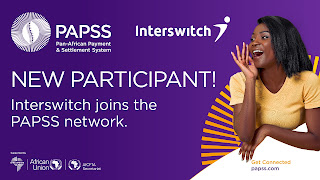PAPSS – the Pan-African Payment and Settlement System – is a cross-border, financial market infrastructure enabling payment transactions across Africa.
Pan-African payments
In order to enable instant payments across African borders in local currency, PAPSS supports three core processes: instant payment, pre-funding and net settlement.
Leading-edge technology connecting African banks, payment service providers and other financial market intermediaries enabling instant and secure payments between African countries
Instant payments
Instant payments made by originators to beneficiaries in their local currencies, no matter where they are in Africa.
With Instant payment, participants no longer need to convert local currencies into hard currencies which then entailed the funds leaving Africa to be converted before being sent back again to the beneficiary bank – adding days to the transaction time. In addition, compliance, legal and sanctions checks are performed instantly within the system. Near-instant payments process within 120 seconds.
Simplified payments
Simplifying the historical complexities and costs of making payments across African borders, providing operational efficiencies that open up vast economic opportunities for all stakeholders.
PAPSS ensures instant or near-instant transfers of funds between originators in one African country and beneficiaries in another.
1. An originator issues a payment instruction in their local currency to their bank or payment service provider.
2. The payment instruction is sent to PAPSS.
3. PAPSS carries out all necessary validation checks on the payment instruction.
4. The payment instruction is forwarded to the beneficiary’s bank or payment service provider.
5. The beneficiary’s bank clears the funds to the beneficiary in their local currency.
How pre-funding works
Due to the speed of the real-time payment process, PAPSS needs to guarantee that funds are available to complete the originator’s transaction before effecting the movement of debits and credits between participants’ accounts. Participants must, therefore, agree to a pre-funding arrangement.
1. Direct Participant issues credit instruction to settlement account in RTGS (central bank).
2. RTGS credits pre-funded account of Direct Participant and notifies PAPSS.
3. PAPSS credits Direct Participant’s clearing account.
4. Indirect Participants leverage Sponsorship Agreements to issue funding instructions via Direct Participants.
Direct Participants integrate directly with PAPSS and the real-time gross settlement (RTGS) systems of central banks in the pre-funding process.
Participants without an RTGS account – Indirect Participants – are able to fund or defund their clearing accounts on PAPSS with the aid of a Direct Participant providing the required liquidity.
Notifications are carried via the ISO 20022 messaging standard, notifying PAPSS, the Participants and RTGS of the status of every stage of the transaction.
How settlement works
PAPSS needs to ensure prompt settlement within 24 hours. Net settlement across all participating central banks occurs at the same time – 11.00 UTC – each day.
1. At End of Day (currently 11am UTC), PAPSS determines net position in local currency for all participating central banks.
2. PAPSS sends credit or debit settlement instruction to Central Bank RTGS (depending on net position).
3. Central Bank RTGS debit or credits between PAPSS Pre-funded Account and Central Bank Suspense account and confirms settlement to PAPSS.
4.PAPSS mirrors central bank instruction to conclude local currency settlement.
5. PAPSS issues equivalent hard currency settlement instruction (based on the net position) to Afreximbank.
6. Afreximbank credits/debits the central banks’s hard currency settlement account held in Afreximbank and confirms to PAPSS.
As with the pre-funding process, notifications are carried via an ISO 20022 messaging system, notifying PAPSS, the Participants and RTGS of the status of every stage of the transaction.
Core service
PAPSS’ core service is provided by the PAPSS instant payment system (PIP™), and supports wholesale and retail real-time payments and the connectivity of banks and payment service providers.
- Key Features of PAPSS Instant Payment
- Instant and irrevocable credits to customer accounts
- Immediate confirmation to both originator and beneficiary
- Service availability 24/7, 365 days a year
- ISO 20022 global message standard allowing interoperability, large data sets and rich data for payment and remittance information
- Secure infrastructure, incorporating cyber-security and payment fraud systems underpinned by behavioural analytics and machine learning capabilities.
Overlay services
Additional and optional services targeting different customers, which Participants can leverage to offer services to its customers.
Request to Pay (R2P)
Focuses on enabling banks and other financial institutions providing cross-border direct debit payment services to their clients (large corporates, cooperative societies, service providers, etc.), and facilitates flexible real-time billing, invoicing and collection of money.
Debits will be collated via a central cross-border debit transfer mandate management system, retrieved when payments are due and passed through to the instant credit system for clearing and settlement.
Escrow Service
A secure and safe arrangement for commercial and other banks where funds required to complete a transaction are in the custody of PAPSS until the transaction is complete, providing increased protection for buyers and sellers who are trading, and also regulating payments.
Remittance Service
Low-cost intra-African remittance services with immediate funds availability to the beneficiary, either through a bank account, a virtual wallet or cash out, where regulations allow.
Proxy Addressing
A service that enables use of aliases such as an email address, national ID, phone number etc. to send and receive payments through PAPSS.
Sanctions Screening
Countries that are under sanctions from Regional governments or other relevant Authorities must be screened and if found must be rejected.
A service that screens transactions against databases such as UN Sanctions list, OFAC, etc.















